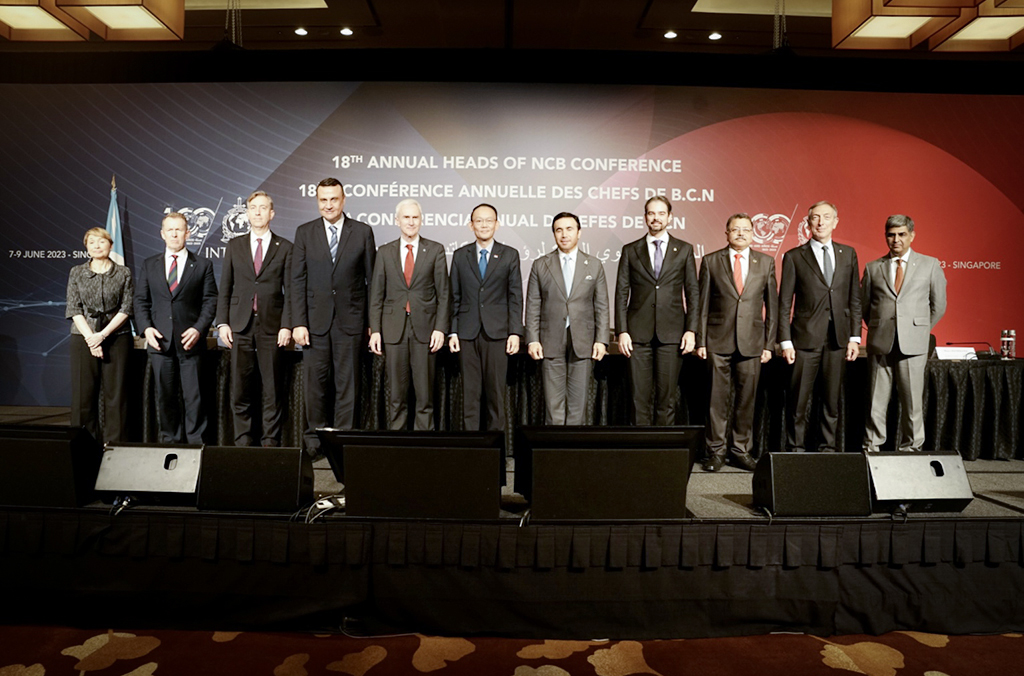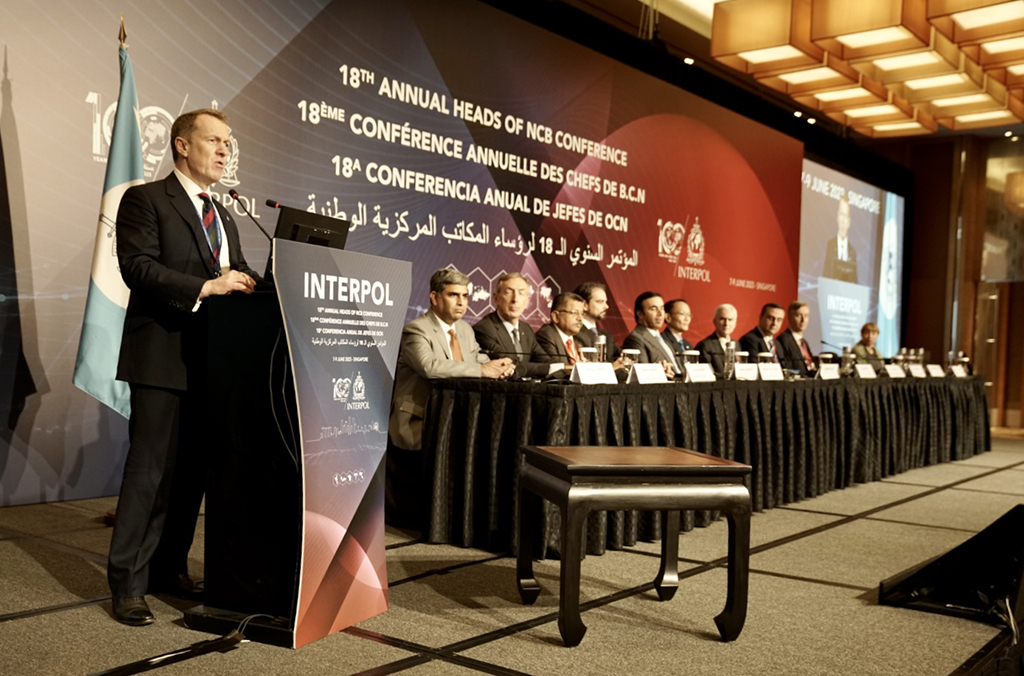SINGAPORE – INTERPOL’s Heads of NCB conference has concluded with calls for greater innovation and information exchange to counter the security challenges posed by evolving criminal threats and technological change.
The annual meeting was one of three events held by INTERPOL over one week in Singapore (5-9 June), with the 2nd Conference of NCB Data Protection Officers and the Police Science Congress also bringing together police leaders from around the world.
The pressing need for police to innovate, leveraging artificial intelligence (AI) and other emerging technologies in a responsible and ethical manner to face a range of crime threats, was a common theme of all three gatherings.
Unprecedented threats
NCBs are the crucial hubs that connect the INTERPOL General Secretariat to national law enforcement in each of INTERPOL’s 195 member countries.
INTERPOL Executive Director of Police Services Stephen Kavanagh, who chaired the Heads of NCB conference, began by challenging participants to consider how NCBs can be reinforced in an age of unprecedented threats.
The following three days saw an international array of law enforcement speakers sharing experiences from their home countries while INTERPOL officers presented capabilities to support national authorities in areas from counterterrorism to online child sexual exploitation.
In the morning of Day 2, delegates broke into regional groups for a series of roundtable discussions on specific crime issues, policing tools and INTERPOL-coordinated operations.
At the conference’s close, delegates approved four conclusions – strengthening the NCB network, delivering innovation on biometric data, countering persistent forms of counterterrorism and addressing the rapidly escalating crime trend of human trafficking-fueled cyber fraud.
Biometric Hub
Throughout the Police Science Congress, speakers and delegates maintained that technology must be harnessed responsibly, respecting human rights and ethics principles.
The Congress saw INTERPOL unveil its AI Toolkit, which provides a roadmap to guide law enforcement as they move to integrate AI technology into their work.
Jointly developed with the United Nations Interregional Crime and Justice Research Institute (UNICRI), the Toolkit will help law enforcement navigate the debates and discussions that form an integral part of this process.
INTERPOL also presented a new system that draws on the latest biometric matching technology and centralizes INTERPOL’s biometric databases. Launched within INTERPOL’s I-CORE programme, the Biometric Hub provides law enforcement officers with a single access point for checking identification information against INTERPOL’s global databases.
Increasing diversity was another key objective identified by participants as critical to ensuring policing organizations continue to innovate in service of their communities. Marking INTERPOL’s 100th anniversary, the Organization released a compendium reflecting on global efforts towards greater gender inclusivity.
“No one can be certain of the security challenges the next century holds, but what the global policing community can do is position ourselves to best respond to the unknown,” said Mr Kavanagh. “And we can do this through continuing to innovate, by building a more diverse workforce, and further strengthening the backbone of international police cooperation: our global NCB network.”












